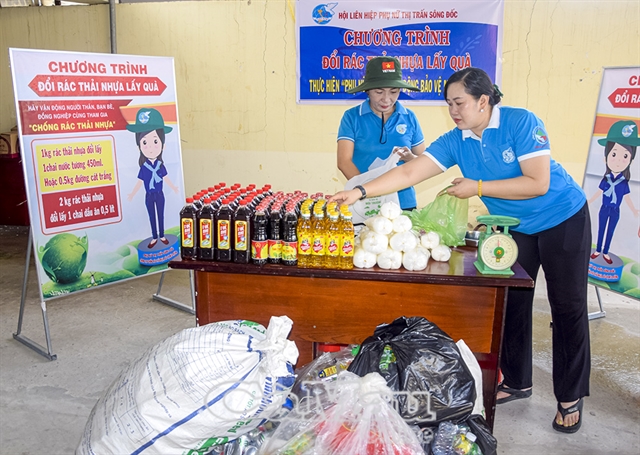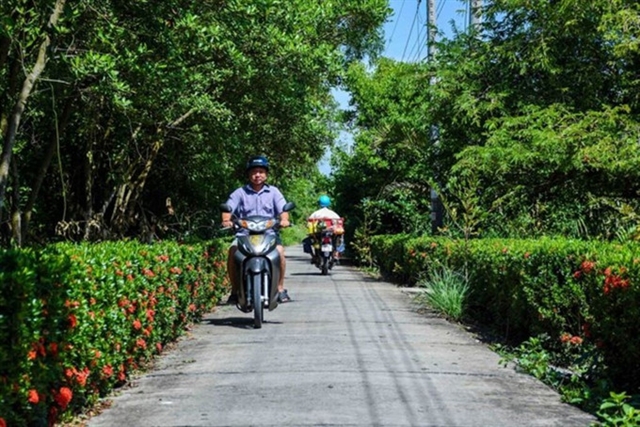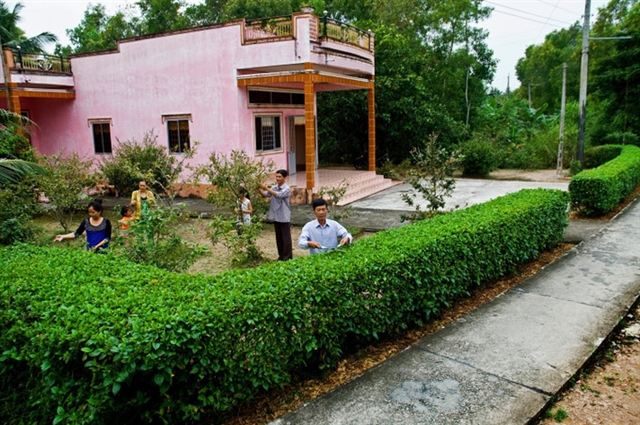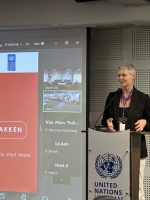
Many rural communities in Cà Mau Province have gradually developed the habit of sorting waste at source, thus shielding the environment and benefiting residents.
This also enables them to utilise the money earned from selling recyclable materials to fund scholarships and support local livelihoods.
Since the implementation of the 2020 Law on Environmental Protection, numerous rural communities in the southernmost province have adopted waste sorting at its source, following various advocacy activities aimed at environmental preservation.
The Sông Đốc Town Women’s Union in Trần Văn Thời District has launched numerous practical and innovative initiatives to protect the environment, including waste separation at the point of origin. Ngô Thị Tuyết Mai, the chairwoman, explained that one notable initiative is the collection of recyclable materials to raise funds for the “October 20 Scholarship Fund” and the “Women’s Start-Up Support Fund.”
From these funds, the women’s union has awarded 60 scholarships worth VNĐ500,000 (US$19) each to disadvantaged students.
It has also provided over VNĐ30 million ($1,150) to three struggling women, helping them establish small businesses, such as selling goods or cultivating organic vegetables, to achieve sustainable poverty reduction.
Mai added: “In Sông Đốc Town, exchanging plastic waste for gifts occurs regularly: weekly, monthly, or during major campaigns. The collected recyclables are then sold to generate funds for deserving students.
“This movement has garnered strong support from local women, helping to foster an eco-friendly lifestyle and spread a spirit of sharing within the community.”
Another successful scheme in the town is the “self-managed household bins,” which has been implemented in numerous residential areas, including 1, 2, 5, and 6B.
More than 250 containers have been distributed to local residents. The “waste sorting at source” concept has been piloted in the town’s 13 local women’s union chapters.
During awareness meetings, members receive guidance on how to properly separate their refuse and dispose of it correctly.
This helps reduce pressure on waste management systems and creates a clean, secure living space.

Across the province, a growing number of creative environmental initiatives are making a tangible difference in rural communities.
Nguyễn Thị Hồng Duyên, chairwoman of the Rạch Gốc Town women’s union in Ngọc Hiển District, described how her organisation has been implementing a comprehensive waste-sorting programme since 2022.
All nine of the town women’s union chapters and nearly 850 members have joined this programme.
All households receive a three-compartment bin to separate organic waste, recyclables and general refuse. Organic waste undergoes composting, and recyclables are sold to accumulate funds.
This has led to tidier living spaces, a more benevolent environment and the development of stronger community bonds.
“Previously, rubbish was discarded carelessly, but now it is properly sorted, homes are kept spotless, and women even earn extra money to purchase milk and school supplies for their children,” Lê Thị Cúc, a member of the Residential Area 3 Women’s Union in Rạch Gốc, remarked.
From this “turning waste into money” fund, the town Women’s Union has provided livelihoods and food supplies to local people and granted school books and uniforms to underprivileged pupils. They cost more than VNĐ20 million ($770).

In Thới Bình District, the “waste for trees” model has proven particularly effective: People can exchange 1.5-2 kilogrammes of plastic refuse for a seedling of green-skin and pink-flesh grapefruit, soursop or star apple.
Lý Minh Vững, chairman of the Thới Bình District People’s Committee, said: “It not only reduces plastic waste but also aids in transforming barren land into green areas. The populace has responded enthusiastically.”
In Trần Văn Thời District, the local Women’s Union has awarded 760 scholarships and livelihood packages to students and women facing hardship with a total value exceeding VNĐ400 million ($15,400), largely financed through the sale of recyclable materials.
Community-driven models such as “recycling-for-reward stalls,” “litter-free streets,” “green houses,” “bring your own basket to market,” and “the VNĐ100 house” have expanded, particularly attracting the interest of young people and women.
Ngọc Hiển District has adopted a proactive stance by issuing Action Programme No. 12, which focuses on environmental protection and climate change adaptation for the 2021-25 period.
Waste-sorting points have been established everywhere, including markets, offices, residential and rural areas, thereby enhancing public awareness and gradually making waste separation a voluntary daily habit.
“The programme’s greatest triumph has been raising awareness and altering public conduct, commencing with something as straightforward as sorting rubbish,” Trần Hoàng Lạc, Chairman of the Ngọc Hiển District People’s Committee, observed.
Lê Thanh Triều, Chairman of the province Fatherland Front Committee, said: “Ingenious models like ‘turning waste into livelihoods’ have not only transformed the look of rural areas but also enhanced the quality of life and contributed to enduring rural development.”
(VNS)




